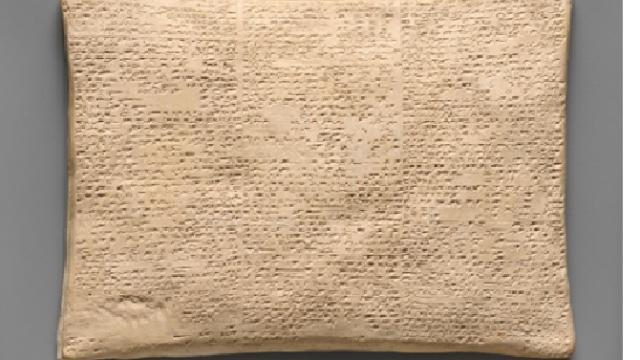
Cast reconstruction of Babylonian Flood Tablet (19th century, after 7th century BCE original) – MET Museum
CCS Research Seminar 1
The destruction of most of humanity in ancient Flood narratives has understandably led to dominantly anthropocentric approaches in their intertextual analyses. This paper considers the significant yet overlooked role of animals and the environment in these ancient stories. Through an ecocritical reading of Flood narratives, including the Babylonian Flood account, Atrahasis, the Flood of Genesis, and the Deluge in Ovid’s Metamorphoses, we will examine how ancient narratives across diverse cultural contexts explore themes of human–animal relations, cosmic justice, and ecological vulnerability. The interplay between humans, animals, and the divine emerges through the appearance of hybrid creatures — such as werewolves and mermaids — and through themes of vegetarianism, collective punishment, and environmental destruction as responses to cosmic disorder. The environmental aspects of Flood narratives reflect ancient meditations on the interconnectedness of living things, shared vulnerability, and humanity’s role in cosmic and environmental order.
Speaker:
Dr. Louise M. Pryke is an Assyriologist and Research Associate at the University of Sydney. She is the author of five books, including Gilgamesh (2019) and Wind (2023). This paper draws from research for her new book project, which considers the role of natural disasters in myth and legend.
Location
Speakers
- Dr Louise Pryke (University of Sydney)
Contact
- Simona Martorana